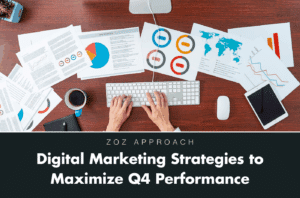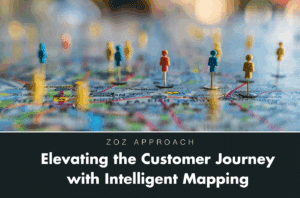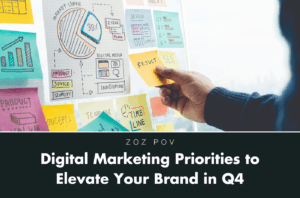Selecting the right advertising or public relations (PR) agency is one of the most critical decisions your organization can make. A strong agency partnership can elevate your brand, drive measurable results, and streamline your marketing efforts. However, without a structured review process, many companies fall into common traps, leading to frustration, wasted resources, or an ill-suited partnership.
This blog provides a step-by-step guide to help you avoid common mistakes and ensure that your agency review leads to a lasting and productive collaboration.
The Importance of Getting It Right
Your advertising or PR agency serves as an extension of your team, translating your brand vision into actionable campaigns that resonate with your target audience. The right agency brings fresh perspectives, strategic expertise, and the ability to execute at scale.
On the other hand, a mismatched agency relationship can result in:
- Campaigns that miss the mark
- Mismanaged budgets
- Communication breakdowns
- Missed opportunities for growth
The stakes are too high to leave the selection process to chance. A thorough, intentional approach ensures that you’re partnering with an agency equipped to meet your goals and grow with your business.
Common Mistakes in the Agency Review Process
Before diving into the recommended steps for conducting a review, let’s explore the missteps that derail many businesses:
Failing to Define Objectives
Without a clear understanding of what you want to achieve, it’s nearly impossible to find an agency that aligns with your goals. Vague RFPs and unclear expectations lead to proposals that fail to meet your needs.
Ignoring Internal Alignment
If your team isn’t on the same page about what you’re looking for in an agency, conflicting priorities and unclear decision-making can create unnecessary roadblocks.
Overcomplicating the RFP Process
Some companies include overly detailed or irrelevant requirements in their RFPs, deterring top agencies that view the process as unnecessarily complex. Similarly, asking for speculative creative work can alienate agencies who prefer to save their best ideas for paying clients.
Focusing Solely on Cost
Budget considerations are important, but selecting an agency based solely on price often results in subpar outcomes. Consider value, expertise, and alignment with your goals rather than just the bottom line.
Rushing the Timeline
A rushed process can lead to hasty decisions, resulting in partnerships that don’t meet your long-term needs. Allow enough time to thoroughly vet agencies and make informed decisions.
Steps to Conduct a Successful Agency Review
Define Your Goals and Scope of Work
Start by identifying your key objectives. Ask yourself:
- What are the primary goals for this partnership? (e.g., increasing brand awareness, launching a new product, managing reputation)
- What expertise does the agency need to possess? (e.g., digital advertising, crisis PR, influencer marketing)
- What does success look like, and how will it be measured?
Documenting these answers provides a clear foundation for the review process and ensures that all stakeholders are aligned.
Assemble Your Internal Team
An agency review involves multiple decision-makers, so it’s critical to build a team that represents different perspectives within your organization. This might include:
- Marketing leadership
- Sales representatives
- Product managers
- Executive sponsors
Tips for success:
- Assign a project leader to manage timelines and communication.
- Use a scoring rubric to ensure consistency in evaluating proposals.
Craft a Thoughtful RFP
A well-written RFP is the cornerstone of a successful agency review. It provides agencies with the information they need to craft tailored proposals and demonstrates that your organization is organized and serious about the process.
Key elements to include in your RFP:
- Company Overview: Briefly describe your business, mission, and target audience.
- Project Scope: Define the services you’re seeking, such as media planning, content creation, or event management.
- Budget and Timeline: Be transparent about your financial parameters and deadlines.
- Evaluation Criteria: Explain how you’ll assess proposals (e.g., creativity, strategy, team expertise).
- Submission Guidelines: Include instructions for format, deadlines, and points of contact.
Research and Shortlist Agencies
Identify potential agencies through a combination of referrals, industry networks, and online research. Look for agencies with experience in your industry, strong client testimonials, and a portfolio that aligns with your needs.
Shortlist 3-5 agencies for further evaluation, focusing on their:
- Capabilities and specialization
- Reputation and credibility
- Cultural fit with your organization
Conduct Pitches and Presentations
Invite your shortlisted agencies to present their approach, ideas, and team members. These presentations provide valuable insight into each agency’s style, creativity, and compatibility with your team.
During the presentation, evaluate:
- How well they understand your challenges and goals
- The creativity and feasibility of their proposed solutions
- Their ability to communicate effectively and build rapport
Evaluate and Decide
Use your scoring rubric to assess each agency’s proposal and presentation. Consider both quantitative factors (e.g., budget, timelines) and qualitative factors (e.g., chemistry, strategic vision).
Questions to guide your decision:
- Which agency demonstrated the best understanding of your business?
- Who presented the most innovative ideas?
- Which team feels like the best cultural fit?
Negotiate and Onboard
Once you’ve selected an agency, finalize the contract terms, including:
- Scope of work and deliverables
- Fee structure and payment terms
- Performance benchmarks and reporting expectations
Set up an onboarding process to familiarize the agency with your brand, processes, and key stakeholders. Clear communication during this phase lays the foundation for a successful partnership.
Best Practices for Building a Successful Agency Relationship
Your work doesn’t end once the contract is signed. To maximize the value of your partnership, follow these best practices:
- Foster Open Communication: Establish regular check-ins to discuss progress, address challenges, and share feedback.
- Set Clear Metrics: Define key performance indicators (KPIs) upfront and review them periodically.
- Collaborate as Partners: Treat the agency as an extension of your team rather than a vendor. This encourages collaboration and trust.
- Evaluate Performance: Schedule annual reviews to assess the agency’s performance and make adjustments as needed.
The Long-Term Benefits of a Thoughtful Agency Review
When conducted properly, an agency review is more than just a selection process—it’s an opportunity to refine your marketing strategy, align your team, and build a relationship that delivers long-term value.
Avoiding common mistakes and following a structured approach ensures that you’ll find an agency partner who understands your goals, brings innovative ideas to the table, and helps you achieve meaningful results.
By investing time and effort into the review process, you set the stage for a productive and impactful partnership that drives your business forward.
Have more questions? Email us at agerritson@zozimus.com
Don’t forget to include us in your Agency RFP process! agerritson@zozimus.com

AJ Gerritson
Senior Partner
AJ is steadfastly committed to the belief that the best branding always starts with clearly defining the “Why”. Back in 2004, when AJ co-founded the agency, it existed to help clients grow their sales and awareness in the market. Today, AJ oversees the strategic direction as well as sales and marketing efforts. He brings more than 18 years of experience to apply the perfect mix of strategy and creative to make client’s dreams come true everyday.
BOSTON, MARS



